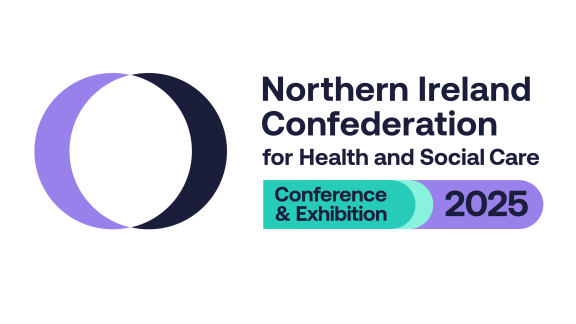NICON webinar report - Waiting list initiatives
Key points
Northern Ireland has the longest waiting lists in the UK. Tackling the backlog is a major priority under NI’s current Programme for Government (PfG).
In May 2025, the NI Health Minister announced a series of waiting list initiatives, followed by an updated Elective Care Framework Implementation and Funding Plan, which together set out new measures and specified areas of financial investment.
In June 2025, NICON held a webinar to help our members get to grips with the new initiatives and future plans. Members expressed support for the initiatives, but challenges in implementation remain.

Overview
On 5 June 2025, NICON held a webinar to assist members in their understanding of the recently announced waiting list initiatives. Panellists included two senior officials from the NI Department of Health (DoH), Tomas Adell, Director of Elective Care and Cancer Policy, and Lisa McWilliams, Director of Strategic Performance, who presented on the updated Elective Care Framework Funding and Implementation Plan, noting how it fits into the wider strategic framework.
Key messages
- Addressing Northern Ireland’s waiting lists, the longest in the UK, is a key Programme for Government (PfG) priority in Northern Ireland. Governmental strategies for reform seek to address systemic demand-capacity gaps through structural reform, service redesign, and targeted financial investment.
- The 2021 Elective Care Framework (ECF) originally identified a need for £700 million investment.
- The 2024 Framework subsequently outlined the challenging financial position, which recent announcements seek to address. The new waiting list initiatives and updated Elective Care Framework Implementation and Funding Plan (all announced in May 2025) set out three areas of investment including:
- £85m for red flag and time-critical care (funded from within existing HSC baseline);
- £50m (additional earmarked funding from monitoring rounds) for backlog clearance, focusing on longest-waiting patients;
- £80m (funded from existing HSC baseline) to expand broader elective care capacity.
- This represents the first opportunity at scale to reduce the capacity gap and target long waiting routine patients since ECF publication.
ECF 2024: Seven Reform Themes
In their presentation, Tomas and Lisa provided an overview of the newly announced waiting list initiatives and current implementation and funding plans, with reference to the seven reform themes contained within the Elective Care Framework 2024.
Elective Care Transformation
- Establishment and expansion of dedicated elective care centres (e.g. Lagan Valley, Daisy Hill); and increased specialisation (e.g. orthopaedics, cataracts).
- Expansion of protected surgical and diagnostic capacity; reduced reliance on unscheduled care infrastructure.
Backlog Clearance
- Dedicated funds and use of initiatives such as ‘mega-clinics’.
- Targeted interventions for long-wait specialties (e.g. hips, knees, scoliosis).
- Relaunch of cross-border reimbursement scheme (limited to 2+ year waiters).
Quality, Efficiency & Effectiveness
- The use of 'Getting It Right First Time' (GIRFT) reviews to enhance clinical effectiveness and patient outcomes.
- Benchmarking through patient-level information and costing systems (PLICS) and variation analysis.
Workforce development
- Addressing underuse of surgical time by expanding theatre access for surgeons.
- Expanding pre-op assessment and training posts in vulnerable specialties.
Independent Sector Collaboration
- Transition from ad hoc outsourcing arrangements to more strategic partnerships.
- Emphasis on value for money and long-term capacity sharing.
Funding models
- Exploration of alternative funding mechanisms for elective care financing, within existing legislative constraints.
Patient Communication
- 'Waiting Well' policy to be co-developed with third sector, with launch of £500k/annum charity grant scheme to support patients on long waiting lists.
Challenges
- While the strategy demonstrates a notable shift towards systemic redesign and preventative investment, the funding gap remains acute: full backlog clearance will require £135m/year for five years.
- Workforce shortages, infrastructure limits, and unscheduled care pressures continue to hamper delivery.
- Procurement, pay negotiations, and capital investment delays pose further barriers
Risks of duplication and inefficiency without cross-system coordination.
Member Insights
During the webinar, NICON members shared their views on the waiting list initiatives.
Trust perspectives
Roisin Coulter, South Eastern HSC Trust:
- Emphasised strong support for prioritising elective care as a system-wide mission.
- Urged better public communication and more explicit public responsibilities (e.g. attendance, appointment cancellation, etc).
- Emphasised staff commitment and need for unwavering leadership to “hold the line” on reform.
Patient representative perspectives
Peter Hutchinson, Patient Client Council:
- Acknowledged structural health inequalities and warned against framing public as solely responsible.
- Called for a shift in public engagement model: from passive recipients to active partners.
- Highlighted risks of exacerbating inequality via cross-border schemes that require upfront payment – Albeit this was acknowledged as a small element of recently announced funding.
- Recommended strategic analysis of health inequality impacts within waiting list data and outcomes.
Next Steps
- Rollout of investment plans across Q3–Q4 2025, including mega-clinics and diagnostic expansion.
- Publication of ‘Waiting Well’ policy and finalisation of third sector grant schemes.
- Continued data collection and reporting as part of PfG monitoring obligations.
- Ongoing consultation with HSC Trusts, clinicians, and patient bodies to adapt and iterate plans.
This webinar was held as part of NICON's 'Grasping the Nettle' webinar series, which will run throughout 2025. The series will aim to build on the momentum and theme of the NICON24 conference, held in October 2024, during which we explored what nettles (strategic priorities) need to be grasped to drive progress within the health and social care system in NI.


